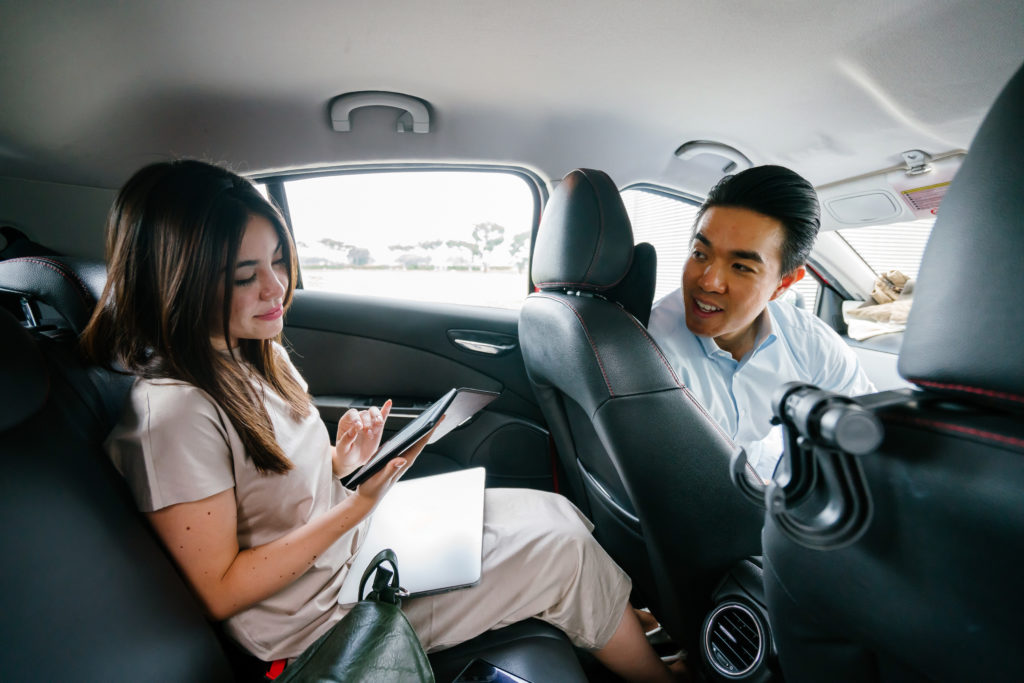
CHICAGO–For her 2020 budget, Chicago Mayor Lori Lightfoot is planning to possibly implement higher fees for riders of solo Uber and Lyft trips, and wants to keep rates lower for those taking a pool.
This announcement comes two weeks before her first budget address, where she will explain her plans to remedy the $838 million deficit for the city in 2020.
On many occasions, Lightfoot has discussed issuing a tax on all drivers entering certain zones in the Chicago metropolitan area in an attempt to raise revenue for the city and decrease traffic congestion. She also hinted recently that for the 2020 year, this tax may take the form of an additional fee on ride-share app passengers entering the central business district.
In her August “State of the City” speech, Lightfoot said these plans come as a way to “address rampant congestion” and to “solve the problem of traffic, pollution, and other issues while simultaneously bringing in a fair share of funding.”
Last Thursday, she told WLS-AM 890 that this new plan will likely include a break in fees for riders who opt for Lyft and Uber pooling options (where ride-share drivers pick up multiple passengers in the same direction), because those services will add less to congestion than rides transporting single-passengers.
“We definitely have heard, and we are considering, because we’ve gotten requests and input on giving a break to those folks that are using pool transportation and charging more for single-occupancy rides,” said Lightfoot. “We’re certainly looking at that.”
However, Lightfoot does acknowledge the difficulty in getting the state legislature to pass these new taxes, as lawmakers are set to meet for only six days during the fall–and for now, the focus on tax structure changes for Chicago lies primarily elsewhere. “The veto session is going to be really, really short,” she explains, “and we’ve got two very big priorities, which is casinos and a real estate transfer tax.”
Lightfoot also says she is even more skeptical about getting state lawmakers to approve the sales tax she has been aiming for in regards to high-end services.
Currently, Chicago city fees on Uber and Lyft trips come out to 72 cents per ride, plus another $5 for rides beginning at destinations with heavy traffic, such as McCormick Place, Navy Pier, and Chicago airports.
With a recent surge in driving around the city, transit rates have been flat while vehicle ownership is decreasing. Some transportation experts believe congestion pricing is an “untapped resource” for Chicago revenue.
“There are certain areas where congestion is getting intolerable,” said Joseph Schwieterman, DePaul University transportation expert. “[We] have to do something. It’s just going to get worse, and congestion pricing is well-suited for that.”
Several other large cities around the globe have found congestion pricing to be effective and lucrative, including London, Stockholm and Singapore. New York City is following suit, with fees coming into place for those traveling below 60th Street in Manhattan by 2021.
But, will fees charged to Uber and Lyft passengers work in the same way, pushing commuters to choose more public ways of transit and thus decreasing overall city traffic?
It seems to be the way of the metro-future. Los Angeles transportation officials have been working toward a tax on Uber and Lyft rides in Los Angeles County, which is part of a much larger plan to begin better managing city congestion as well as to fund transportation projects to be fully implemented before the 2028 Olympic Games.
What’s more–funds being funneled into city revenue by public transit tend to decrease when Uber and Lyft are more easily accessible. A 2018 study of travel patterns showed that 60 percent of city locals would have traveled by foot, bike, or transit if ride-hailing services had not been as available.
Los Angeles’ public transit ridership has plummeted by 20 percent over the last few years, despite billions of dollars being spent on new rail lines. Uber and Lyft are believed to be one of the biggest factors contributing to this issue, and it’s safe to assume the case is comparable to that of Chicago.
With a tax on rides that will deter solo ride-share travelers, that will also bring in revenue for city infrastructure funding, it appears these new fees will come into play much sooner than later.
Reader Interactions